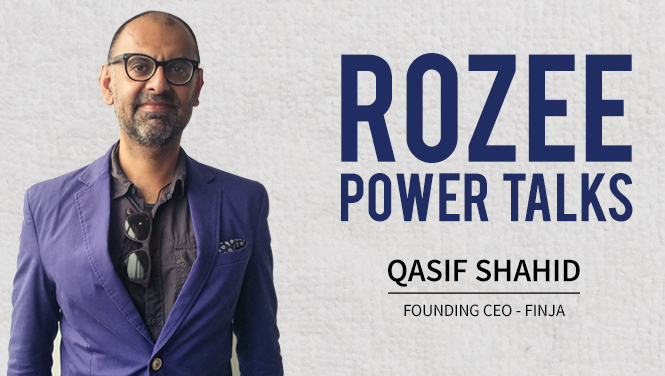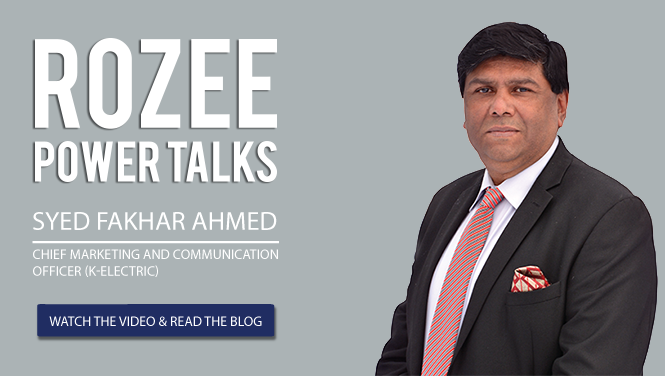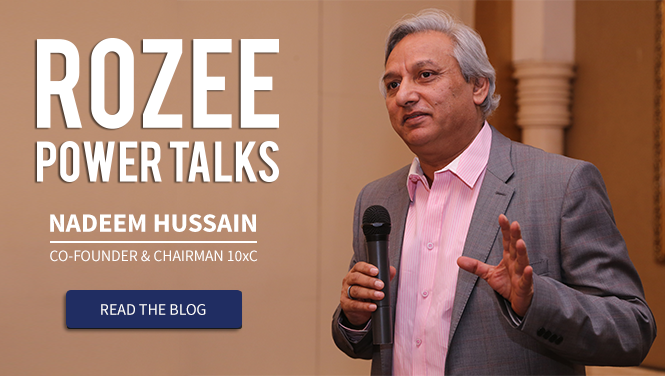Talking about the future is a tricky business, talking about short-term future is even trickier.
You have to be very precise when you talk about short-term future because you cannot use trends the way you can in the case of long-term future. There is always a risk of losing your reputation if you are wrong. So, the risk is personal while the benefit is communal, where people who predict correctly can avert disaster and reinvent themselves, their company and the industry to ride the wave. The “why, what and how” allows you to position yourself to ride the wave as it comes along.
You help give people a way of thinking, through which they can predict the future, that makes them see the things which are across the bend and others cannot see yet. Whenever that has happened, people have largely benefited from it, as in the case of e-commerce or telemedicine.
Fortunately, my experience with Finance and Technology alike, has led me to the point where the economic future of Pakistan can be seen a bit more clearly. I look at the carefully constructed dynamics of the current trends which ultimately pave the way for the forthcoming ones in order to:
Decode the future and craft a winning strategy for you, your company and your industry.
In order to gauge approaching trends, it is vital to look at past events since, history doesn’t repeat itself but it usually rhymes. I strongly believe that.
Disruptive transformation is an emerging market phenomenon, where we can see that people will change for something specific in a very short period of time. Feature phones came in emerging markets faster; by 2010, Pakistan had 100 million feature phones. Internet and smartphones are taking off much faster in Pakistan because this is the first time people have their entertainment, education, communication and source of income in one place. So this is my first prediction, that millions of people change their behaviour in emerging markets because of disruptive innovation. Pakistan is the epicenter of this phenomenon because emerging markets have a steeper growth trajectory and will eventually cross the developed markets.
My second prediction is that Fintechs are the force to go out and create massive change in everything that happens in the world. Emerging markets are the biggest use case for Fintechs as mobile phones, agent networks and mobile wallets are the baseline cover, on top of which, Fintechs can come in and produce more complex products like insurance and wealth management, savings and lendings, digital credit, etc. Emerging markets are where the action will happen and Fintechs will be the tool to create that action by using over-the-top business models.
I strongly feel that what mobile apps have done to smartphones is exactly what Fintechs will do to banks. This brings me to my third prediction, where I’m saying a partnership between the incumbents and Fintechs will redefine our relationship with money. As Fintechs are able to innovate, they will make banks relevant again by reinventing banking completely. The more successful and productive partnerships will be with small and mid-size banks because the real fight is between the large and small banks. The bank’s role is redefined as the new world order dictates that the more agile players own the front-end of products, while the back-end process is owned by banks. This leads to my next prediction.
I believe that mobile wallets will do to bank accounts what mobile phones have done to landlines. Bank accounts and mobile phones are privileges in Pakistan; it requires a lot of work to get one. Mobile wallets are going to come on phones and disrupt bank accounts. There are 30 million bank accounts but there will be close to a 100 million mobile wallets in the next 3 years. There are 70-80 million people with smartphones, so a mobile wallet will be a dematerialized bank account that lands on the mobile phone.
There are other predictions I’d like to make as well. Smartphone-led commerce will change payments the same way digital camera changed photography. It will all be real-time and free and can be shared instantly. There will be unlimited access to money so the number of transactions will be greater and the shift from a cash-heavy economy to a cash-light one will happen a lot faster. Users will end up saving time and money so eventually the quality of life will go up.
Online commerce will grow exponentially in next 2-3 years in the mobile commerce space. There will be more wallet to wallet transactions where the vendor and buyer can exchange money on the back of mobile commerce.
I see a lot of startups in Pakistan morph into Fintechs. The real thing to do right now is to become a Fintech where you solve the last mile problem, i.e., payments and come on top of banks. Later there will be a second wave of startups which will create global solutions because they were able to solve payment problems. Finally, I would say the way to go is to demonetise services to create new behaviours that are repeated over time. It will take a while for these types of changes to happen. The main difficulty lies in getting people onto a platform that offers financial services like Finja. However, emerging markets give you the opportunity to create disproportionate value for customers, which is more than the users are already experiencing. Leading me to the obvious conclusion that a change in e-commerce is imminent and will be here to stay.




